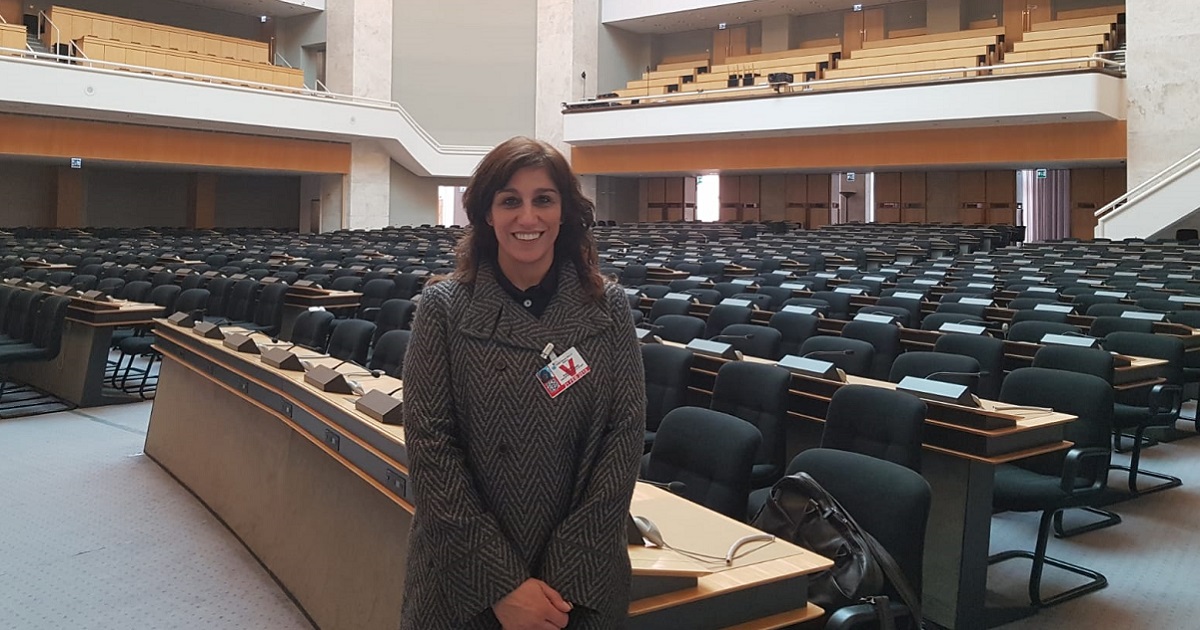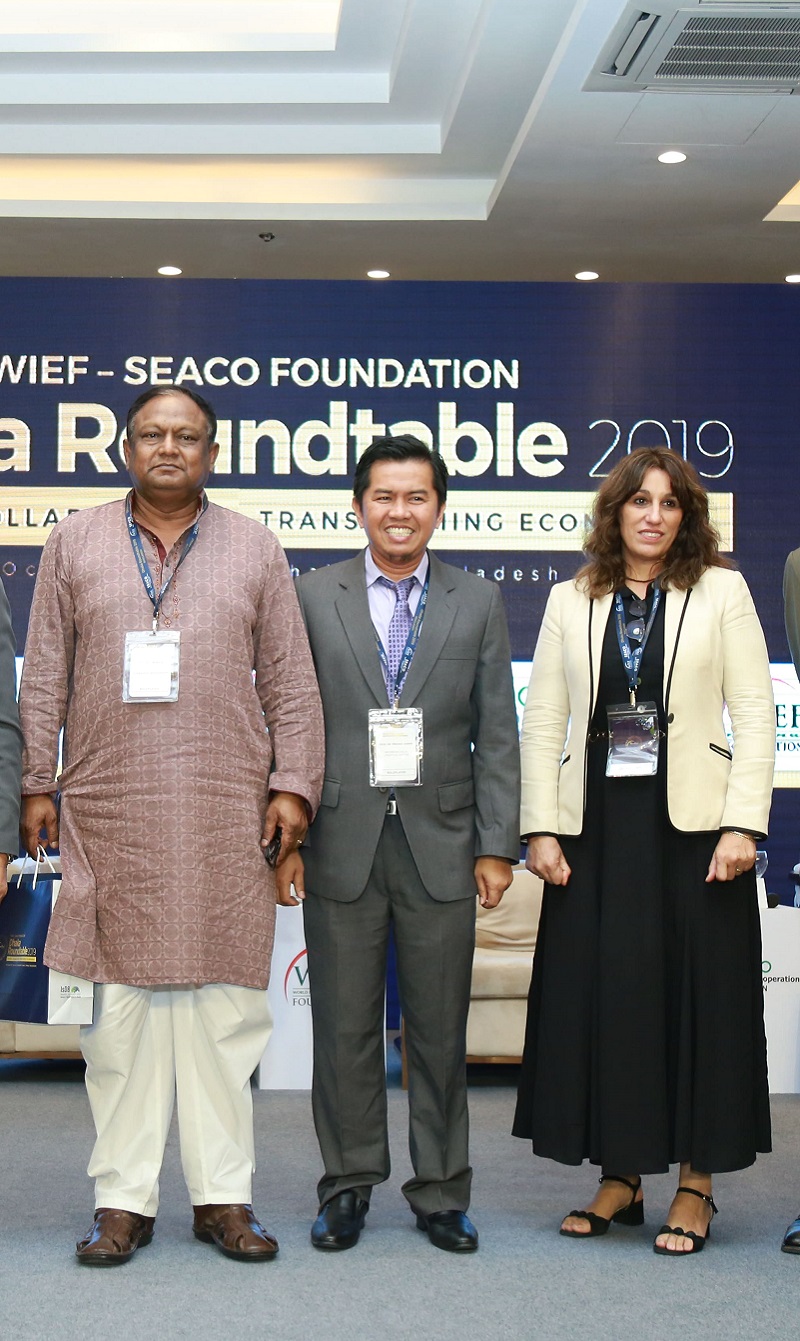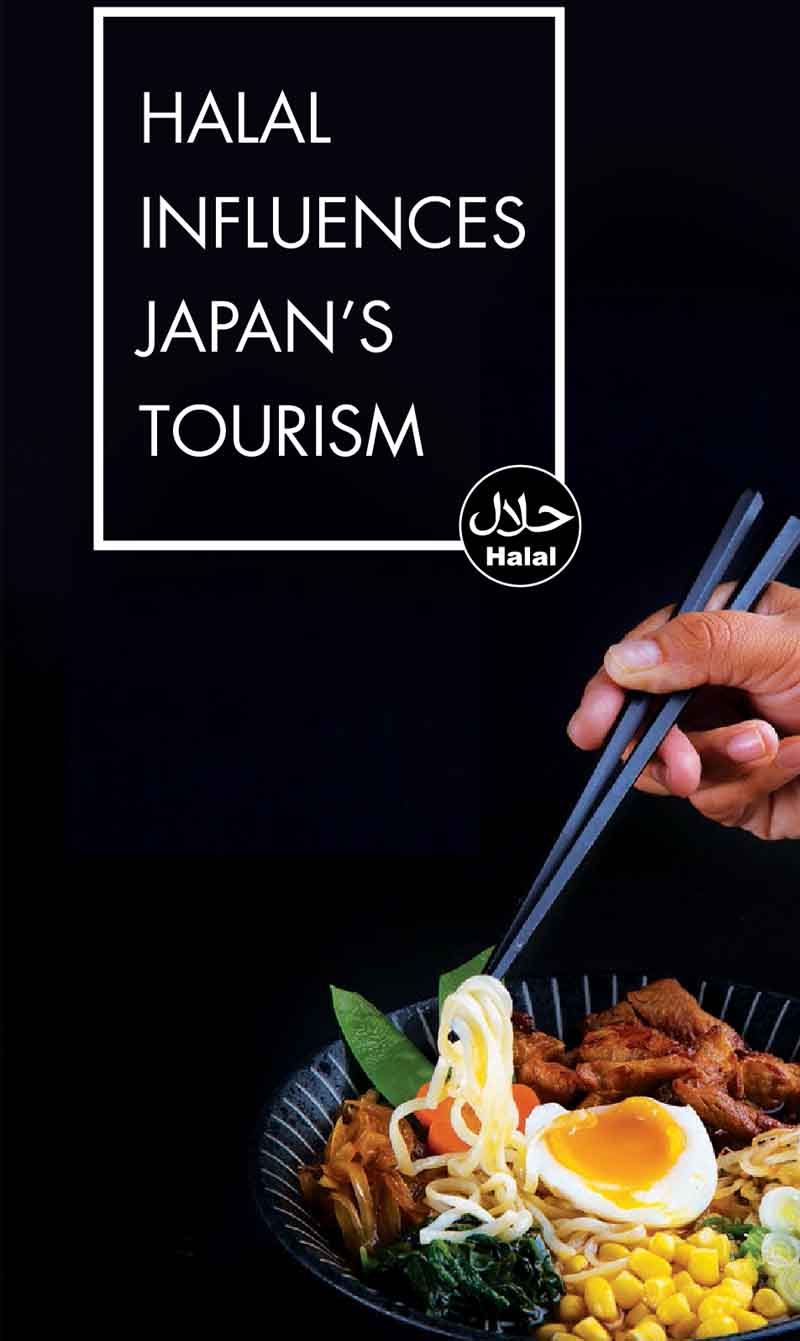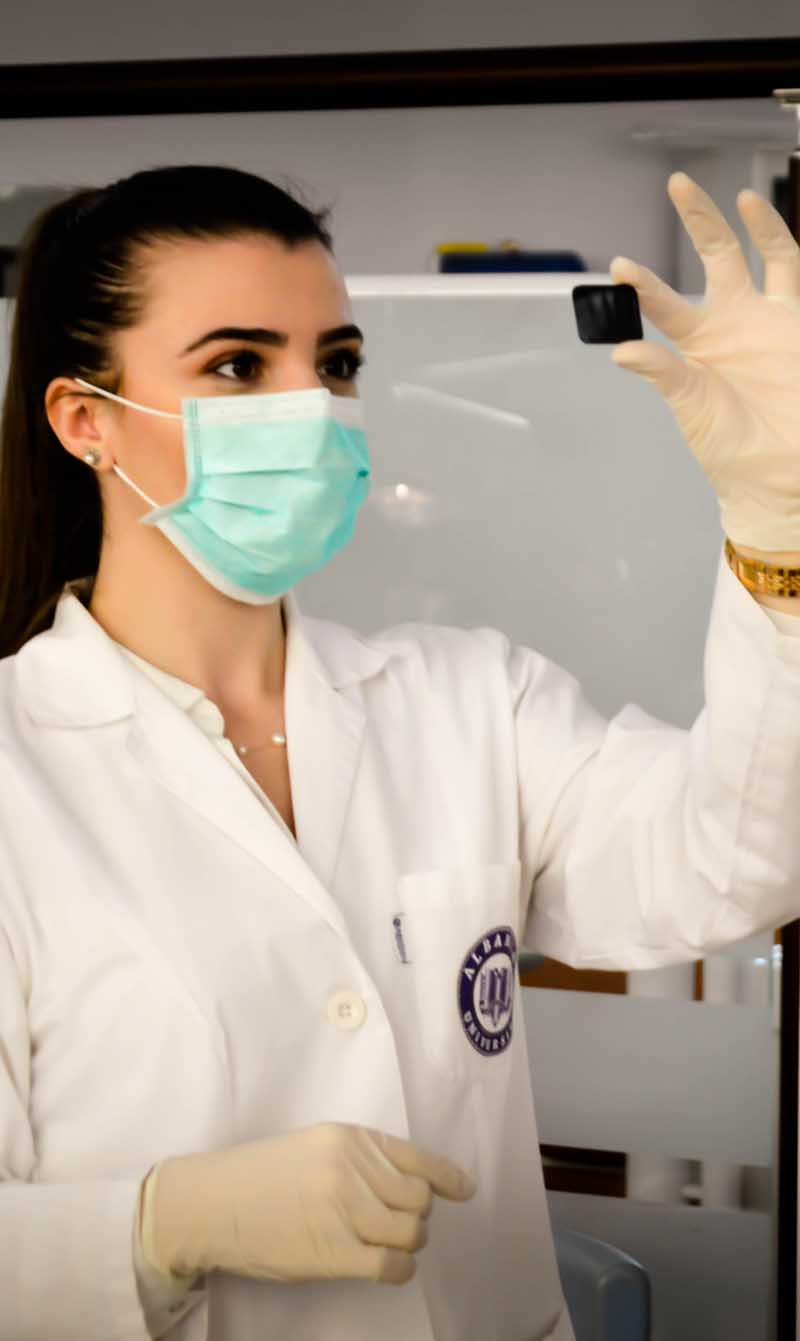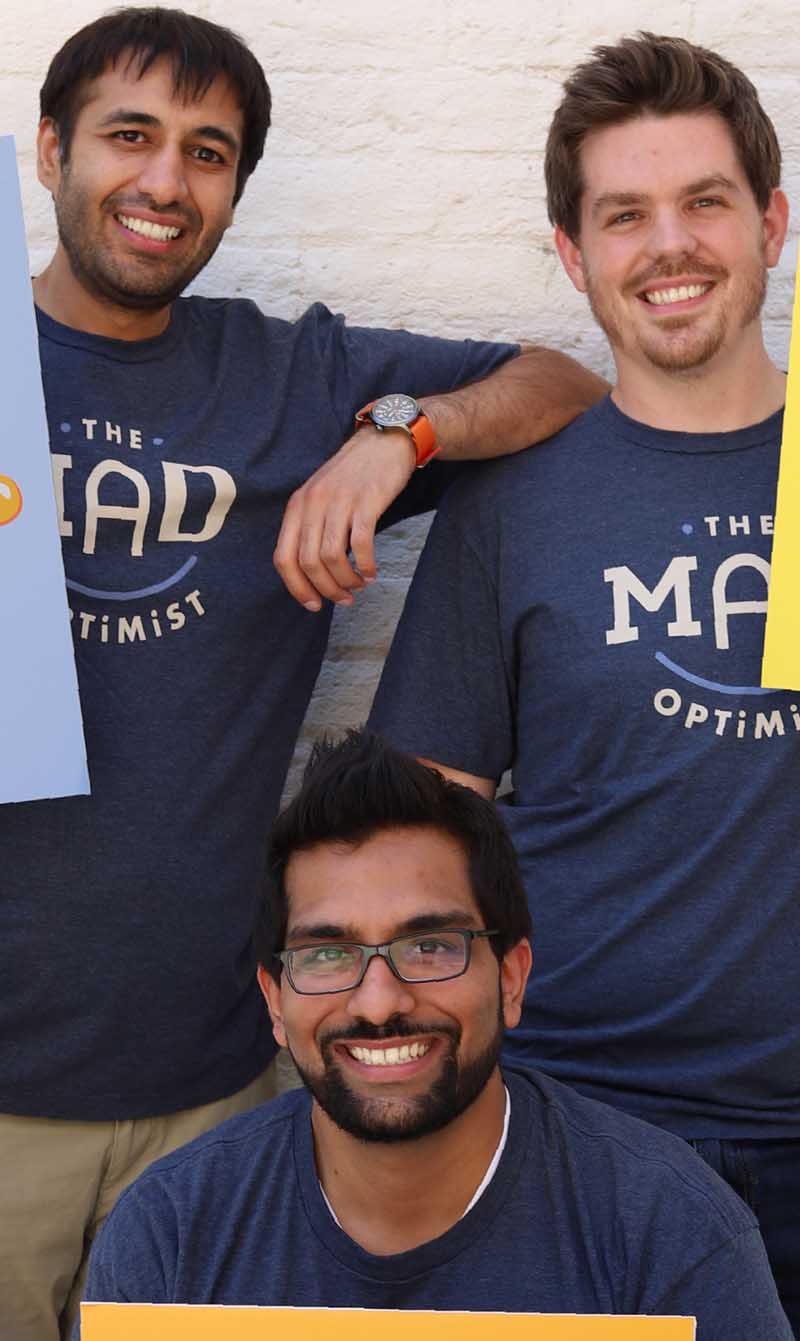Possibilities of the Halal Industry
Director of International Relations of Halal Institute of Spain and speaker at WIEF-SEACO Foundation Roundtable, Dr Barbara Hayat Ruiz-Bejarano, talks about halal industry’s tremendous opportunities, its challenges in this technological age and its burgeoning popularity.
I’ve been working in matters related to the Islamic economy for almost two decades, mainly focusing on the cultural, societal and trade aspects of it. Three years ago, I joined the Halal Institute of Spain in Cordoba to manage its international relations. Currently, I’m the director of the Islamic Cultural Centre in Valencia. It was a very mixed community, and soon it was obvious that we needed to articulate our community in a way where they wouldn’t be at a disadvantage.
Becoming a Muslim 19 years ago, it was very challenging at the beginning. Coming from a strong European background, I found the Islamic world very diverse and challenging. Also, the cultural references were so different, I had to start learning Arabic to equip myself with a new set of vocabulary in order to grasp the concepts. It was both easy and extremely difficult.
The whole concept of being a Muslim in the globalised era came to the forefront and the halal industry was part of it. Many European Muslims find it necessary to devote themselves professionally in ways that are meaningful for them as Muslims. Halal-related businesses are a great opportunity. These past years, I mainly worked with the community and the political sphere in Spain and Europe. This helped me gain a good perspective of the main issues that needed addressing in order to move forward in the EU context.
Halal Institute of Spain
The Halal Institute started about 20 years ago. At the beginning it was a small project, but it has been growing, much like the halal market. The next professional step for the Halal Institute is at a global level.
The Halal Institute is part of Junta Islámica, which is Spain’s Islamic board. It was a pioneer Spanish Muslim community that was created in 1970s, just after the new Spanish Constitution was approved. This new Constitution allowed Spanish citizens to choose their faith and Islam became public again [in Spain] after three centuries existing underground. After three decades, Junta Islámica became one of the most prominent Islamic communities in Spain.
Overview and Opportunities of Halal Industry
The Halal Industry – the famous ‘3 trillion-dollar market’ – in global terms, accounts for 3.5 per cent of the world’s economy. However, Muslims will represent about 25 per cent of the global population in the coming decades. As an emerging group of consumers, they have very specific characteristics, which differ from their parents’ generation. They’re millennials, who are committed to their principles, connected to the world and born into a globalised economy. They’re Muslims on their own terms – they go for the values and goals of Islam but they aren’t content with learning a tradition, they’re actively involved in matters which concern themselves and their families including making informed decisions as consumers.
Muslim Millennials, or ‘Generation M’, as British Muslim author Shelina Zahra Janmohamed has branded them, are conforming powerful as well as dynamic societies, and they represent a large percentage of the Muslim world.
In the past five years we’ve seen the consolidation of Islamic finance and also of the food and beverage sector. Now, we see that the projected figures for halal and Muslim-friendly tourism have exceeded expectations. These three markets represent three different aspects of life and our needs as human beings – survival, safety and leisure. Soon we’ll be able to develop other sectors. I believe one key sector will be entertainment or edutainment, in the more educational aspect.
Entertainment is essential for this generation in education, personal development, but foremost, for the transmission of values and patterns of behaviour. Currently, the entertainment sector is dominated by America, China and India. Through video games, movies, TV programmes, music and literature they portray societies and values that don’t match those of Islam.
There’s tremendous opportunity here for development of edutainment companies and products, particularly for Generation M creators. This sector hasn’t been traditionally associated with Islam but it’s a fantastic vehicle for ideas. We’d love to see Islamic Disney or Islamic Warner emerging soon.
Regulating Halal Standards
When we look at the Islamic economy, it’s true that most economic sectors require regulation and the issue of halal standards is always at the top of the list. A standard is a document setting common practice and a desirable minimum set of characteristics and quality for goods and services. Consumers are concerned with reason, considering the bad practice of the industry and their dependence of imports, particularly food, cosmetics and drugs, that have a direct impact on our health.
Standards organisations outside the OIC such as ISO or CEN are secular. Therefore, they shouldn’t intervene in shariah matters and they certainly shouldn’t be the ones to regulate halal.
The Organisation for Islamic Cooperation gave Standards and Metrology Institute for Islamic Countries (SMIIC) the mandate to produce and promote the international halal standard for Islamic countries in order to facilitate trade with and within the OIC. At the moment, about 20 countries have implemented SMIIC standards as national standards. More cooperation and agreement among Islamic countries is desirable, for the sake of their citizens.
Unfortunately, the development of the Islamic world is adversely impacted by the political turmoil, and more often than not, the pretence of leadership of individual countries clashes with the broader interest. The eternal question of who leads in the Islamic world is having a negative impact in the socio-economic development. We need young leaders, female leaders, inspiring leaders. However, common standards, regulatory frameworks that boost transparency as well as good practice, and invigorating leaders aren’t enough to bring the Islamic economy to its full potential.
Halal in the Technological Age
We must consider the current context, and technology has played a key role in the way the world is shaped nowadays. From political engagement to consumer action, technology has been the vehicle for empowering individuals and channelling ideas and objects.
The keyword for the development of the Islamic economy is lifestyle. Muslim lifestyle, with its many nuances, is what supports and will help expand Islamic economy and our lifestyle is already connected to the digital. Today, we use technology for almost everything and this includes handling data, interacting with objects from a distance, managing operations or experiencing virtual scenarios.
Some particular phenomena have been key in shaping the evolution of the Islamic economy: the economic emergence of Asia, demographics and diasporas. These have meant: re-interpretation of Islamic lifestyle, growth and exportation of the model worldwide. Let’s not forget, lifestyle is about us, people, while technology is about helping us and bringing us together. They must enhance and support human interaction.
I believe some technologies will help spread the message and values of Islam in a way that the whole new idea of what is Islam will be brought to a new level, detached from cultural niches and traditions. We need to reconnect the idea of Islam with humanism and detach it from nationalisms. The ultimate goal is the transformation of society to towards inclusive, equal and just communities, always respecting diversity.
What we’ve seen in the development of some economic sectors, such as food and beverage, tourism or logistics, is the need for further globalisation: traceable, environmentally-sound global production with regional taste, personalisation because the tourist is in the centre of the experience and no longer a mere spectator and integrity when it comes to AI and blockchain.
If we consider the self, the community and the environment, many technological developments will have an impact on the Islamic lifestyle and hence, on the halal concept such as digital self, personal data, aging, family models and roles including gender, sexuality and reproduction issues, mobility and connectivity where English emerges as a koine in the Islamic world, personalisation of tailored products and services, and resource exploitation. The protection of the person and the environment is currently at the centre of every major development in the world. Muslims can provide a unique perspective in proposing solutions for these new scenarios through a particular kind of technology, one that’s respectful of the individual.
Challenges and Solutions
The coming challenges are global, quite beyond the power of a single person or a single country. This requires cooperation and alignment. We’ve shifted to the era of federal and regional powers. The emergence of nationalism is a response to these federal movements, the fear to lose one’s identity and control over one’s assets. It’s time to move from our identity and our assets, towards models of regional cooperation.
Halal is a good ambassador for cooperation and development. Here are some examples:
- Joint ventures: Halal-certified vaccine, Halal Industry Development Corporation of Malaysia and AJ Biologics of Saudi Arabia, Arab anime movie by Saudi Arabia and Japan.
- Alliances: Halal Park Network including Penang International Halal Hub, Iskandar Halal Park, Modern Cikande Halal Valley and Cordoba Halal Cluster, joined efforts to enhance connectivity in three strategic points for logistics between Spain, Malaysia and Indonesia.
- Cooperation for expansion: Wardah Indonesia partners with Hajj/Umrah travel agents to market their products.
- Partnerships: Biopharmaceutical product Growtrop between South Korea and Iran.
- World networks for trade: China’s Belt and Road Initiative is articulating 28 Islamic countries in its expanding network for producing and trading halal goods.
- Crowdfunding: Alchemiya’s video-on-demand service that offers content which tells the story of Muslim creativity and its contribution to global civilisation.
- Bringing Muslims to the forefront: Kamala Khan, Marvel’s first Muslim super-heroine, Riz Ahmed who is an actor and Sadiq Khan the London Mayor.
- From startup to growth: halalbooking.com, an online reservation system.
The halal economic actors are evolving and changing as we speak. There are huge gaps in the value chain that we’d love to see filled by Islamic companies with strong corporate values and true commitment to honest liaising in business. There are investment opportunities and a whole market waiting for the next exciting idea. Events such as the World Islamic Economic Forum are essential to raise awareness about the wide scope in front of us.
The main challenge is the danger of nationalist egos and individualistic, uncoordinated, disparate policies. These can suddenly raise commercial barriers, promote corruption or bad practice, and impact a whole productive sector. The lack of coordination disperses efforts and creates counterproductive situations.
We need to engage in halal diplomacy and start engaging with other stakeholders. There are good opportunities at international forums such as World Halal Summit, Halal Assembly or trade fairs. Every country’s policy is respectable, but more coordination and joint efforts are definitely welcome. SEACO could be a good forum for regional promotion of halal economic development.
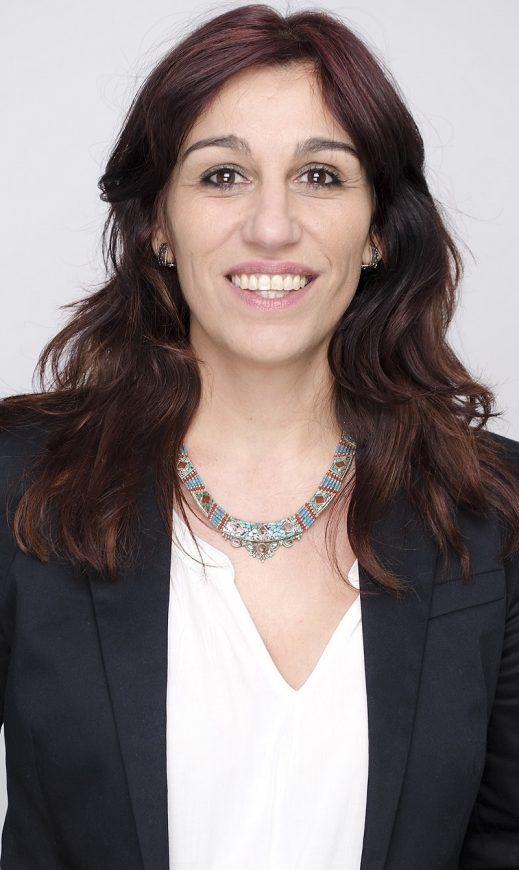
Final Words
The opportunity of speaking at the WIEF-SEACO Foundation Roundtable enables me to offer the vision of a European Muslim, a person who has been engaged in local and national policymaking, as well as observed social change from a double perspective. I come from two different worlds and I can help understand both and transit from one to the other. Being in the Halal Institute, an organisation involved with more than 80 countries, I can also offer a diverse vision of the main stakeholders in the halal scene. But I am sure that this opportunity will offer me much more, so I’m grateful to be able to join this event.
Read other event speakers’ interview here and here.
Read about regional collaborations here.
